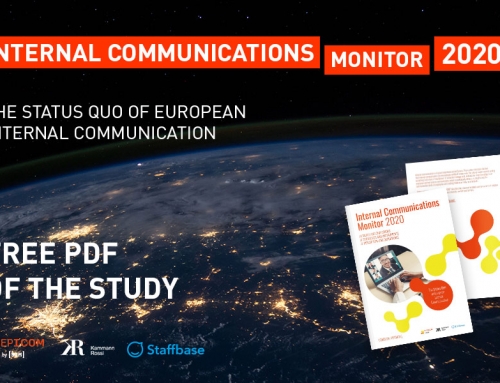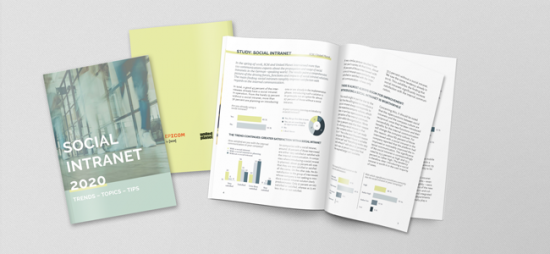Although we are still going through the pandemic the first months of it left us with lots of learnings and showed us how humans can quickly adapt to new challenging situations.
Dealing with communication & repetitional crisis is something all communicators study and learn about. We all know the importance of being prepared, but this crisis was so unpredictable that I feel that it caught most of us communicators off guard.
At trivago we adapted quickly and worked hard over the past months in testing new features and improving our product to prepare for the re-start of traveling. From an Internal Communication perspective, we needed to act quickly in order to help talents keep their focus and motivation throughout the global crisis.
Around the end of February, we created a crisis committee with the relevant internal stakeholders. While at the beginning we faced internal resistance as many were not ready to comprehend the potential impact the COVID-19 crisis could have to us as a business. However, our Internal Comms team knew that we needed to be ready for whatever situations that may arise, and to help prepare our management and talents for the worst-case scenario. We were fortunate enough to set up the committee a few weeks before the outbreak. Because of our pre-planning, we helped to seamlessly communicate the move to a fully remote set-up pretty quickly. Below are the main learnings from our experience during the first months of the pandemic.
Be prepared!
Crisis committees are an excellent tool to prepare an action plan against any crisis. The key learnings are:
- Invite key stakeholders: the committee must remain small and agile. Just have one representative of your key stakeholders.
- Decision-making process: define clear roles in the committee and a clear & fast decision-making process.
- Regular encounters: establish regular meetings to discuss and analyse situations and possible scenarios.
- Communication: select beforehand in which channels and which communication formats you will use to reach your employees. Select a spokesperson when the crisis hits. Communication must remain clear, transparent, and easy to find!
- Internal communicators role: internal communicators must drive the committee, prepare meetings, and the agenda. Make sure to keep the meetings active and focus on making actionable decisions.
- Documentation: another part of the internal communicator role is to document the outcome. Every crisis is a learning opportunity.
Adapt
The COVID-19 pandemic showed us the capacity people have to quickly adapt to new situations. In this situation, we needed to quickly adapt our businesses, and the way our employees communicate with one another – technology vs. in-person. From a communication perspective, we put in place a cadence of communications, and adjust the way we use our internal channels, our tone of voice and the content we share with our employees. Also, in time of change and crisis, having a different set of KPIs is important as you need to adapt and change the strategy quickly if we are not seeing our desired results.
In the first weeks of the pandemic at trivago we:
- Moved quickly everyone into a remote set-up: although every company was forced to this, we manage to do it very quickly and supported talents through along the way. The decisions and plans made in the crisis committee helped us move and adapt fast.
- Supporting the business: the pandemic put all plans into revision, our role was to help the business communicate all these recent changes. We worked closed with managers to make sure they were conveying the right messages to their teams.
- Worked on our Culture: at trivago, our culture is based on trust, personal interaction & collaboration. This is why we invest so much effort into providing the environment & workplace which fosters these informal exchanges. Of course, this was challenged by Covid-19, so our efforts were put into keeping our culture alive through remote events and providing tools for our talents’ mental wellbeing.
- Created a central place for information: we created an FAQ page on our intranet which became the central place for information regarding company decisions and the virus progress.
- Established a more frequent communication between CEO and employees: we replaced our quarterly all-hands meeting with a weekly Q&A. It was an opportunity for our CEO to connect to employees and for them to ask him questions directly.
- Shared local information: we worked on sharing local news as it related to travel restrictions, restrictions put in place in the locations of our offices as to what is open/closed, etc. and we translated everything in English for our diverse talent workforce.
- Adapted our content: we created content for our internal news site to remote working, self-organization, nutrition, cooking, etc, instead of making it so business heavy.
Employee engagement
To engage the audience is key in any communication and it is something communicators work on daily basis. Nevertheless, I think this concept needs to be reinforced, especially during a crisis.
I believe there are three aspects that are key for creating engaging communications:
- Alignment: between communications and the business. Working together to ensure that employees know what the organisation stands for, what it aspires to achieve and how it plans to get there. This is even more relevant in the current time; share your vision, what is the path and the scenario you envision after the crisis and how are you planning to get there.
- Transparency: your words should match up with reality. Employees don’t expect you to know all, but they do expect that you tell them the truth about the things you do know. Transparent communication creates trust. If people trust you, they will be more willing to share the information and to take action.
- Empathy: understand and acknowledge employees’ emotions. Covid-19 impacted everyone’s life, some more than others, but everyone in the world needed to adapt. People react to crisis in different ways, try to understand it, and reflect it in your decisions and communications.
Preparing, adapting and engaging quickly will help you navigate the crisis, but all of these needs to always be crossed by your company culture. Company culture should be reflected in the decisions you make and should be your guide while you are adapting. Your company culture is not just having a cool and fun workplace and the benefits you offer, but rather the way you interact with each other. Focusing on your company’s purpose and values will help you make the right decisions during the crisis.
This article is based on a web session at the European Internal Comms conference July 14th.
Couldn’t make the live event? The recordings are available now. Get on-demand access here: Internal Comms Conference.
Author:
 Francisco Lalanne is a PR & Communication professional with +10 years’ experience in large corporations. He has worked in different communication areas such as: corporate, PR & branding, event planning, and internal communication, which is his current focus area at trivago. He has a strong experience unifying different stakeholders across the organization, fostering transparency and fostering communication between management and employees sothat they can have fruitful and valuable discussions. He had always worked very close to HR topics, that is why we has experience with crisis management, leadership communication, talent development, corporate culture, and diversity.
Francisco Lalanne is a PR & Communication professional with +10 years’ experience in large corporations. He has worked in different communication areas such as: corporate, PR & branding, event planning, and internal communication, which is his current focus area at trivago. He has a strong experience unifying different stakeholders across the organization, fostering transparency and fostering communication between management and employees sothat they can have fruitful and valuable discussions. He had always worked very close to HR topics, that is why we has experience with crisis management, leadership communication, talent development, corporate culture, and diversity.









